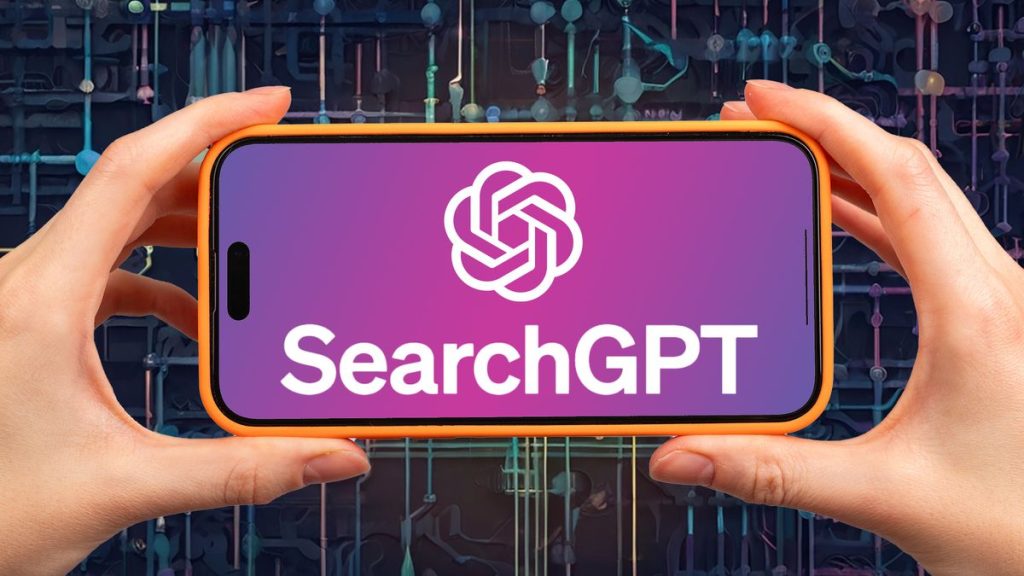With the release of SearchGPT, an AI-powered search engine meant to enable users to search more naturally, OpenAI has declared its ambition to enter the search engine market. Though labeled as a “temporary prototype,” the Thursday disclosure is a straight shot across the bow of the singularly dominant Google—as well as Microsoft Bing, which right now offers search results for ChatGPT.
Prototype Testing and Initial Users
“We are testing SearchGPT, a prototype of new search features meant to combine the strength of our AI models with information from the web to give you fast and timely answers with clear and relevant sources,” OpenAI stated in an official blog post.
According to the company, at launch, SearchGPT is now available as a prototype to 10,000 test users. Models of the GPT-4 series drive the service.
Given the constraints of conventional large-language models, which rely on a vast but stationary corpus of data acquired up to a point in time, restricting their understanding of current events, OpenAI’s venture into live web search has long been speculated upon, especially.
AI-Powered Summarization
OpenAI’s series of teaser movies reveals that, like ChatGPT, the new AI search engine is meant to summarize website material, including news sites, and respond to user questions generally. It reminds me in some respects of what Perplexity—touted as an “answer engine”—currently provides. But if included in ChatGPT itself, SearchGPT would make OpenAI’s chatbot generally capable.
Such an integration would produce a multimodal artificial intelligence tool with complete search results and handling of many kinds of material.
Technological Shift
SearchGPT notably seems to substitute its own technology for Microsoft Bing. Unlike the present version of ChatGPT, the videos published by OpenAI do not contain the usual banner stating that Bing powers search results. And even as Google has been including artificial intelligence into its offerings, SearchGPT’s advanced features obviously pose a major threat.
Actually, shortly after the news came, Microsoft—which runs Bing—and Alphabet—the business behind Google—saw their stock values fall. Both stocks dropped noticeably and closed down roughly 3% for the day.
Google Zero and Web Search Evolution
SearchGPT is the most recent innovation in what The Verge’s Nilay Patel has called “Google Zero,” a new age in web search. AI-powered search engines choose a more direct tactic, providing succinct, condensed information responding exactly to what users are looking for, instead of offering a list with different sources and approaches to a specific query, stressing practicality over variety.
Google’s AI summaries have caused great concern for web publishers, but since consumers are less likely to visit their sites if the material is taken and shown up front, AI’s propensity to hallucinate and even offer harmful responses depending on faulty sources aggravates the problem.
Publisher Collaboration and Source Attribution
OpenAI stated publishers will be free to use different approaches when handling its search engine and AI chatbot in order to allay these issues.
“SearchGPT is about search and is separate from training OpenAI’s generative AI foundation models,” Open AI explained. “Sites can surface in search results even if they opt out of generative AI training.”
OpenAI has, in the meantimealso teamed up with other publishers to improve SearchGPT’s accuracy and quality. These collaborations let OpenAI offer connections to original sources, unambiguous, in-line attribution, and current data. Among their notable collaborators are News Corp. and The Associated Press.
“SearchGPT is designed to help users connect with publishers by prominently citing and linking to them in searches,” OpenAI stated in its release. “Responses have clearly in-line, named attribution and links, so users know where information is coming from and can quickly engage even more results in a sidebar with source links.”
Future Prospects and Improvements
Like previous OpenAI products, such as Sora or its Voice Engine, this is only a teaser to inform consumers of the work the artificial intelligence juggernaut is undertaking. Sam Altman claimed that even in its early version, he liked SearchGPT over other search engines. He also promised a future experience better still.
“We will learn from the prototype, make it better, then integrate the tech into ChatGPT to make it real-time and ideally helpful,” he said.
You can also freely share your thoughts and comments about the topic in the comment section. Additionally, don’t forget to follow us on our Telegram, YouTube, and Twitter channels for the latest news and updates.


